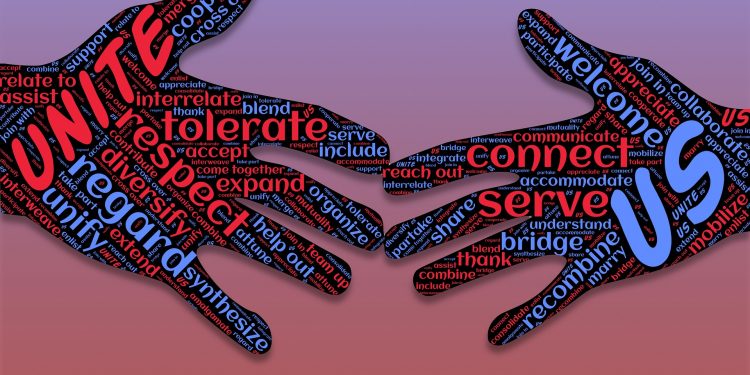A Call For Unity – JT Eberhard
This is an edited excerpt from a talk given by JT Eberhard at the American Atheist Convention 2015. He can be reached at his blog What would JT Do? and twitter @jteberhard
We atheists are doing what we’ve always done: calling for compassion, both from our peers and in our lawmaking. After all, if more people had found morality in their empathy there never would’ve been a woman stoned to death for having sex nor a witch burned at the stake by people whose blood ran thick with Jesus. Those lives and uncountable more lives could’ve all been saved if people had read the bible and said “That’s cruel, I won’t do it” instead of saying “Yes, my lord.”
And that’s what we want from our lawmakers: laws based on compassion. Where biblical edicts conflict with compassion, it is the bible, not compassion, which must be ignored. It is we who think Abraham, even when commanded by god to murder his son, should have said “Fuck you, I’d rather die than kill my own child.” And it is we who say, even if god commanded us to make second class citizens of our neighbors, too bad. It is cruelty that distinguishes demons from angels, and if god reveals cruelty it is our duty to be better.
Amazingly, this attitude gets us viewed as too immoral to hold public office, so we have a long way to go. But that’s ok, because progress is being made slowly, but surely.
How do we keep it up? [By coming out of the closet]
[One of the many things] the gay community does so well is it doesn’t erect a barrier to entry to the movement. If you want to be an ally to the gay rights movement, if you care about the well-being of LGBT citizens, you’re in. They don’t demand you prove yourselves worthy of being an ally and insist you’re not one if you don’t toe a lengthy party line. They want you. It doesn’t matter if you’re religious, it doesn’t matter if you don’t agree on every other issue – the main thing is that you care about gay people.
For all the progress we’ve made it seems atheists are getting less good at this. How many of us have been told if we don’t agree entirely on one issue or another, then we’re not an ally to atheism or to social justice – even though we share the same ultimate goals? How many of us don’t go near certain subjects we care about for fear of what will happen for our honest opinion when we aren’t convinced by shame tactics? Do we not see all the resentment this creates among people who should be friends? More and more the fact that we don’t agree on everything, or don’t agree on particulars with the causes we share, is causing some of us to become more and more committed to declaring enemies of would-be allies. If you take nothing else away from this talk, take this message to heart: This cannot continue.
While Greta Christina and I certainly have many points of disagreement, one of the things she’s entirely right about is that social movements are driven by justified anger. If you’re not angry, you’re not paying attention. But what we often forget is that anger is a double-edged sword. While it motivates us to combat injustice, it can turn us against one another. While justified anger is necessary for positive change, it’s important to note that not every action taken or every word spoken as a result of justified anger is fair or good, something failed social movements of the past have taught us. The measure of a good person is what they do with their justified anger and how they treat others who share it.
The increased infighting in the atheist movement recently, the declaring enemies of people who have fought beside us for years, has the happy effect of energizing a portion of one’s base, but it is also having the unhappy effect of creating apathy in many of the people it doesn’t drive away from the atheist movement entirely. As a minority movement trying to grow in order to better match up with the religious right, pushing away people who are on our side is something we cannot afford – especially since we can inspire our base without doing so.
Ideological purity is a pipe dream, one that is eating away at the Republican party right now. It must be sufficient that we agree on enough things, and that we be able to discuss the rest, working together to ascertain the truth, rather than telling each other to fuck off at the first sign of civil disagreement and retreating back to your flock to receive their praise. There are enough villains in the world without dressing our own people up that way.
We must be able to talk to each other to resolve our differences without trying to destroy one another. Yes, we will not always agree. Yes, sometimes people we like and admire will say something we don’t like. That has to be ok. On such occasions we can’t pretend like insisting that person is our enemy, or the enemy of the very people for whom they’re fighting, is the same as healthy criticism. It ain’t.
And we can’t pretend there aren’t negative consequences to our shared cause for failing to detect that difference.
Call me a tone troll, say I’m divisive for pointing out, without malice, how some attitudes and actions are driving people away from atheism and social justice, say I’m telling people not to be angry even though I’ve said in this very talk that anger is a requisite for social change – I’m sure I’ll get all of it and that there will be no shortage of mischaracterizations from some. Whatever you might call me, this is how it is, and what’s left is for us to decide how we want to move forward.
For everybody taking what I say to heart, is it not obvious the most productive way to move forward is as friends, with that friendship sustained by assuming the best of each other when we’re not on the same page, not the worst? If some of us exerted the same effort looking for the bounteous ways our other activists have worked in support of our causes, or the extent to which those causes are shared by pretty much everybody, rather than digging for the significantly fewer times our opinions didn’t sync up, I really do believe a lot of the newfound divisiveness in atheism would melt away, paving the way for a movement united, of peers working together on what we do agree on and attempting to change each other’s minds IN GOOD FAITH on the rest. Such a movement will be more fun, it will minimize burnout and apathy. It will be more welcoming to people who care, mirroring the LGBT movement.
Nobody wins a war on their own…. I don’t hope we all come to agree on everything. I’m an optimist, but I’m not delusional. But what I do hope is that … we become better at working together, and not just together within our cliches. What I want to see one year from now is more trust in one another, a movement united by the same compassion we demand of our lawmakers, even when many Christians don’t.
There are no nobodies in this movement. I know we can all see the good each other are doing. I know we can start to mend the wounds and grow closer rather than further apart.
And I believe we will!





